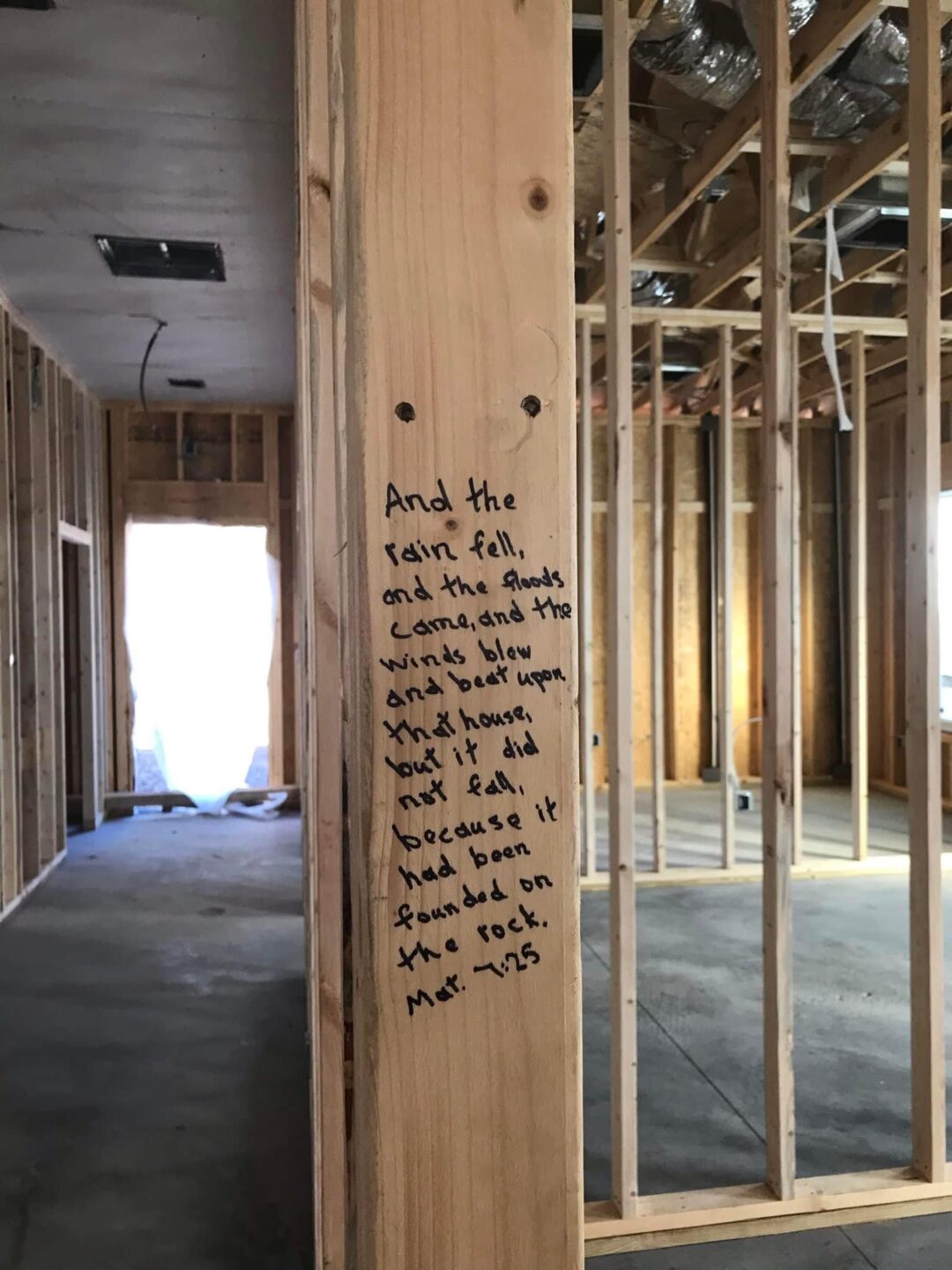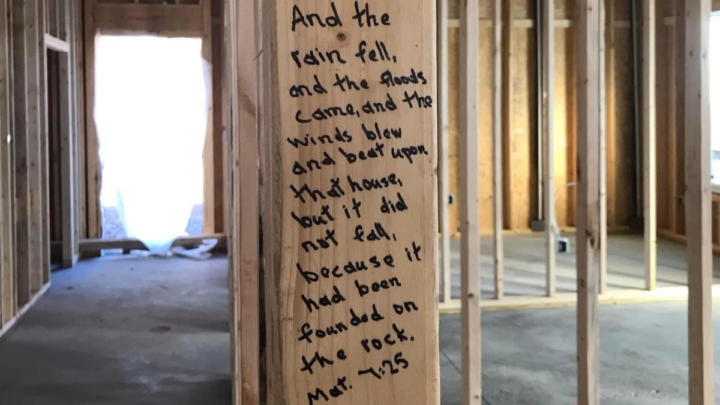In February, 2021, Wesley Memorial United Methodist Church, Farmville, NC experienced the tragedy of a fire, believed to be the work of an arsonist. Due to the quick response of area volunteer fire departments, the fire was contained to the sanctuary, but there was extensive heat and smoke damage to the rest of the facility, including the educational wing. The Fellowship Hall was undamaged as it was a separate building. This enabled the church to continue worship on site during the rebuild.
A negotiation with our insurer indicated two deficiencies in our policy. One was a clause that covered the cost of bringing a renovated structure up to current code. The other was a limitation on replacement costs if the insurer deemed the structure to be salvageable. Our dilemma was that the original structure was not salvageable due to specific damage to masonry and other critical supports. Our insurer thought it was salvageable. Our policy would cover restoration but not replacement. Also, there was no way to bring the existing 1947 structure up to code as the current construction could never be in compliance. All this meant was that we would have to demolish the sanctuary and educational wing and completely rebuild with inadequate insurance coverage.
By God’s grace, a wonderful congregation, community support, great contractor and the help of the conference, we were able to completely rebuild a larger facility and furnish the sanctuary and education wing in 18 months with no debt and a fund set aside for maintenance. Wesley Memorial UMC is a small country church with limited resources. We did not know how we could afford to rebuild even a smaller facility. Our representative from the Conference Board of Missions was very quick to let us know how the board could help us rebuild. In the event we found ourselves short of funds, the board would extend a low interest loan with favorable terms. As it turned out, we did not need the loan, but knowing it was available gave us confidence to move forward.
The District Board of Church Location and Building (Ann Davis, Chair) provided the needed oversight and authorization for us to proceed both organizationally and legally. This backcheck is necessary to prevent a church from overextending itself with an overly ambitious project. The existence of an available line of credit made our project viable.
Another benefit was the services of a construction manager at no cost to the church. My father was a construction manager, so I was aware of the value of this service. He negotiated on our behalf with the insurance company. He guided us through the bidding process with contractors. He made sure the construction complied with all county codes. He worked directly with the contractor on quality assurance. He kept us informed of our options, made
recommendations and anticipated potential change orders so that they appeared in the original contract. He explained our options in a way that everyone understood. All decisions were left to the church in a timely manner so that we stayed in sync with the ongoing construction.
Since childhood, I have been involved with church construction and renovation. I have only seen two projects that came together as they should. In both cases, God and someone very knowledgeable
was leading the effort. The Board of Missions saved us thousands of dollars in fees and the construction manager saved us many more in project costs. He also handled the issues that most divide congregations and tie-up church leadership to the point that they wish they could resign. Through this process, decisions that the congregation should make were not left to the pastor at the last minute.


First Picture – Night of the fire. Second Picture – Scripture (Matthew 7-25) on rebuild.
There are some who think the restrictive clause in all United Methodist Church deeds is a way for the conference to assume control of the property against the will of the congregation. One would be hard pressed to find an example of that. Rather, the conference’s interest in the property actually works to the church’s advantage; as it did with Wesley Memorial.
Why was the conference willing to help us; the restrictive clause in our deed that gave it a vested interest in our success. As United Methodists, we pride ourselves in our connectedness. It gives us the capacity to transcend ourselves and our resources to participate in ministries we might not otherwise be able to afford. It gives us confidence in knowing that we are all in this together. The only thing I question about the restrictive clause is the word “restrictive”.
Rev. Dennis P. Levin (Retired Elder)
Former Pastor, Wesley Memorial United Methodist Church

